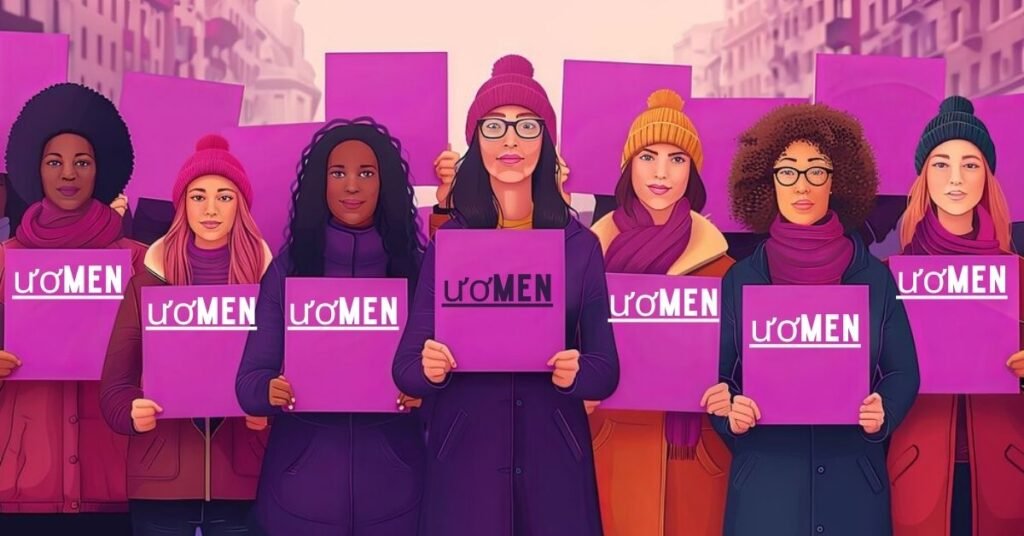Learning about “ươmen” made me see the value of qualities like empathy and strength in everyone, not just women. It’s helped our team work better together and create a more supportive and open environment.
“Ươmen” is a term that blends the idea of essential human qualities with traditional feminine traits. It stands for qualities like empathy and strength, and it applies these traits to everyone, regardless of gender.
Explore ‘ươmen’—a concept that combines empathy and strength for everyone, no matter their gender.
What does ươmen mean?
The term “ươmen” reflects a modern approach to understanding gender and human qualities.
It blends two ideas: “ư,” which in Eastern philosophy means essence or spirit, and “omen,” which means womanhood or femininity. The song “̰ơmen” praises many good qualities, such as empathy, compassion, and strength.
Men focuses on qualities that are important to everyone, regardless of gender, while traditional gender categories focus on differences between men and women. It helps people see things more broadly by realizing that these traits are not unique to one gender but are part of what makes all of us human.
How is ươmen different from traditional gender roles?
“Ưomen” differs from traditional gender roles by challenging and expanding beyond conventional categories of masculinity and femininity. Traditional gender roles often prescribe specific behaviors and attributes based on whether someone is identified as male or female, reinforcing rigid expectations.

In contrast, “ươmen” represents a more inclusive concept that transcends these binaries. It focuses on universal human qualities such as empathy, resilience, and creativity, which are not confined to any single gender.
By embracing “ươmen,” we recognize that these traits can be found in everyone, promoting a more flexible and equitable understanding of gender that values individual strengths over societal stereotypes.
Which old philosophies influenced “ươmen”?
Ancient Eastern philosophies that stress the balance and integration of masculine and feminine forces have an impact on the idea of ươmen.” One important one is the Taoist idea of yin and yang, which shows how in nature, things that seem to be at odds with each other are actually linked and depend on each other.
Yin stands for traits that are usually associated with women, like openness and kindness, while yang stands for strength and action. The idea of “ƛ,” which in some Eastern cultures means essence or spirit, also adds to the idea of ươmen” by emphasizing the basic traits that are the same for both men and women.
These ideas affect how people think about “ươmen” as a balanced and inclusive view of human virtues that values both usually feminine and masculine traits as important parts of our shared humanity.
How can ươmen” help in today’s talks about gender equality?
“Ưomen” can significantly contribute to contemporary discussions on gender equality by offering a more inclusive and flexible understanding of gender roles. Traditional gender discussions often focus on rigid binaries and the need to break down barriers between men and women.
In contrast, “ươmen” promotes a broader perspective by emphasizing universal human qualities like empathy, resilience, and creativity, which are not confined to any specific gender. By embracing “ươmen,” we encourage a culture that values these attributes in everyone, irrespective of gender.
This shift helps move beyond stereotypes and encourages a more equitable approach where all individuals are recognized for their unique strengths and contributions, fostering a more inclusive and supportive environment for gender equality.
How does ươmen” fit with feminist goals in Western cultures?
Ưomen” aligns well with feminist goals in Western cultures by challenging traditional gender norms and promoting a more inclusive understanding of gender roles. Feminism advocates for the recognition and equal value of all genders, seeking to dismantle stereotypes and expand opportunities for everyone.
Ưomen” supports these objectives by emphasizing qualities such as empathy, resilience, and creativity—traits traditionally associated with femininity but valuable to all genders. By framing these attributes as essential and universal, “ươmen” helps to break down the restrictive boundaries of gender roles.
This approach reinforces feminist ideals by encouraging a broader appreciation of individual strengths and fostering a more equitable society where people are valued for their inherent qualities rather than conforming to predefined gender expectations.
Why is education important for understanding “ươmen”?
Education plays a crucial role in understanding “ươmen” because it helps to spread awareness and foster deeper insights into this inclusive concept. By incorporating “ươmen” into educational curricula and discussions, we can challenge traditional gender stereotypes and promote a more nuanced view of human qualities.

Education encourages students to explore and embrace the universal traits associated with “ươmen”—such as empathy, resilience, and creativity—regardless of gender. This exposure helps individuals recognize the value of these attributes in everyone, leading to more equitable attitudes and behaviors.
Moreover, education empowers individuals to apply these principles in their personal and professional lives, contributing to a more inclusive and supportive society. Overall, integrating “ươmen” into education supports the development of a more informed and empathetic generation.
How can ươmen” ideas change leadership and workplace culture?
Using ươmen ideas in leadership and the way people work together can make big changes for the better by creating settings that are more accepting and caring. Hierarchies and competition are big parts of traditional leadership models, which can make it hard for people to work together and share their different points of view.
Leaders can make the workplace more collaborative and helpful by promoting “men” traits like empathy, resilience, and innovation. Leaders who use this method are more likely to value emotional intelligence and make sure that all of their workers feel heard and valued.
It also backs a type of leadership that puts mentoring and giving people power over authority and control. As a result, businesses can get more creative ideas, happier workers, and a more fair and dynamic workplace culture that values and builds on the unique strengths of each individuals.
FAQS:
How does ươmen affect today’s talks about gender?
“Ưomen” impacts modern gender discussions by offering a framework that supports equality and inclusivity. It helps to shift the focus from gender-specific roles to universal human qualities, promoting broader acceptance and understanding.
What historical influences are behind the concept of “ươmen”?
The concept of “ươmen” is influenced by ancient Eastern philosophies that emphasize balance and harmony between masculine and feminine energies, such as Taoism, which values both yin and yang aspects of existence.
How can organizations incorporate “ươmen” principles into their culture?
Organizations can incorporate “ươmen” principles by fostering a culture of empathy and support, encouraging diverse perspectives, and implementing policies that promote inclusivity and balanced leadership.
What role does “ươmen” play in personal development?
“Ưomen” plays a role in personal development by encouraging individuals to cultivate qualities like resilience and empathy, which can enhance personal growth, improve relationships, and lead to a more fulfilling life.
Are there any criticisms of the “ươmen” concept?
Criticisms of “ươmen” may include concerns that it could unintentionally reinforce existing stereotypes or oversimplify complex gender issues. It’s important to approach the concept thoughtfully and address such concerns to promote genuine inclusivity.
Conclusion:
Ưomen” is a concept that combines essential human qualities with traits traditionally seen as feminine, like empathy and strength. It highlights these important qualities in everyone, no matter their gender.
Read:


